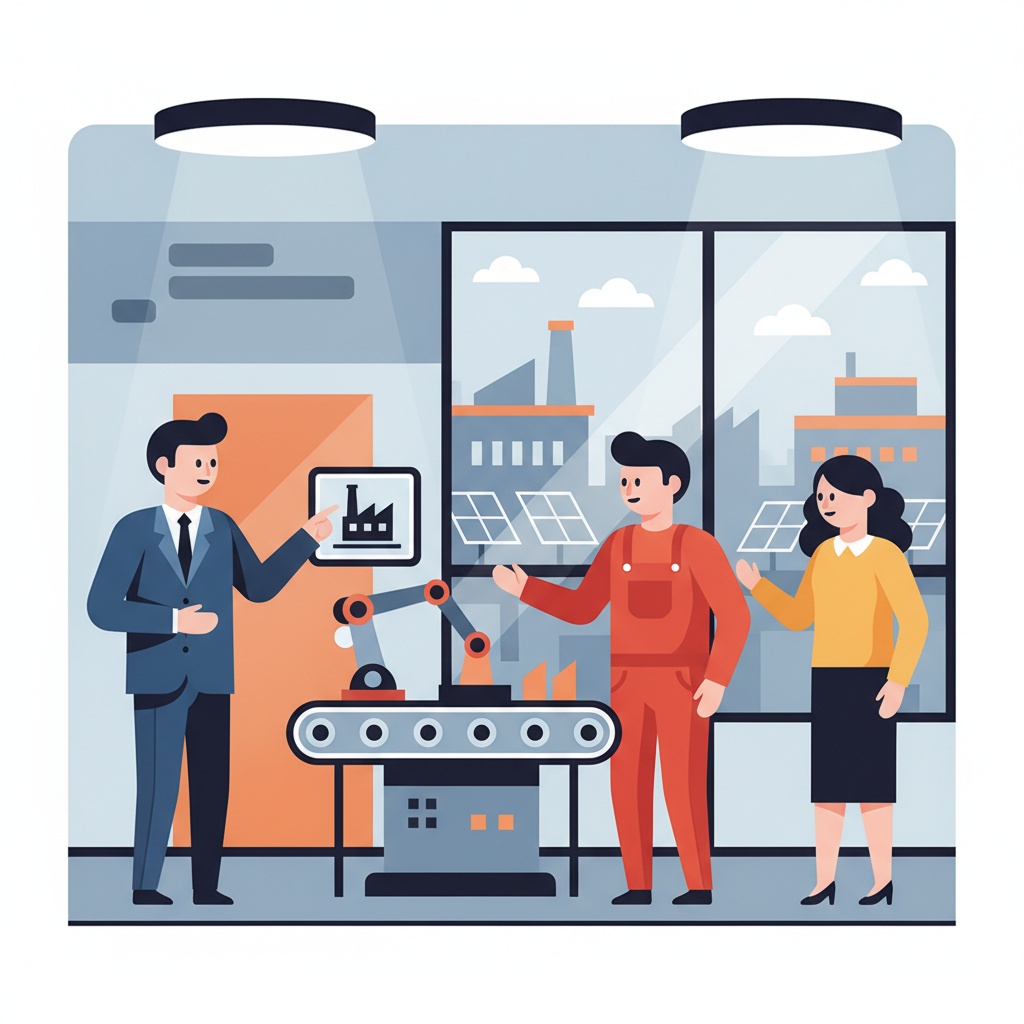
Setting Up a Manufacturing Business in JAFZA: Key Considerations
Reading time: 12 minutes
Ever dreamed of establishing your manufacturing empire in one of the Middle East’s most dynamic free zones? You’re looking at a golden opportunity. The Jebel Ali Free Zone Authority (JAFZA) isn’t just another business hub—it’s a manufacturing powerhouse that’s transformed countless entrepreneurial visions into thriving industrial realities.
Key Strategic Advantages:
- Zero personal income tax, and potentially 0% corporate tax on qualifying income for Free Zone entities meeting specific conditions, with a 9% corporate tax rate applying to taxable income exceeding AED 375,000 for non-qualifying income and mainland businesses.
- 100% foreign ownership rights
- State-of-the-art infrastructure connectivity
- Streamlined regulatory frameworks
Here’s the straight talk: Manufacturing success in JAFZA isn’t about luck—it’s about strategic positioning and understanding the nuances that separate winners from wannabes.
Table of Contents
- Understanding JAFZA’s Manufacturing Landscape
- License Requirements and Business Setup
- Infrastructure and Logistics Considerations
- Regulatory Compliance Framework
- Cost Analysis and Financial Planning
- Success Strategies from Industry Leaders
- Your Manufacturing Roadmap Forward
- Frequently Asked Questions
Understanding JAFZA’s Manufacturing Landscape
Picture this scenario: You’re a textile manufacturer from Bangladesh looking to expand into Middle Eastern markets. JAFZA offers you something extraordinary—a gateway to 3.5 billion consumers across Europe, Asia, and Africa, all within an eight-hour flight radius.
Strategic Geographic Advantages
JAFZA’s location isn’t coincidental—it’s engineered for manufacturing excellence. Situated adjacent to Jebel Ali Port, the largest man-made harbor globally, your products can reach international markets with unprecedented speed and efficiency.
Key manufacturing sectors in JAFZA include Electronics, Textiles, Food Processing, and Automotive, among others, reflecting a diverse industrial base.
Industry-Specific Opportunities
The electronics manufacturing sector dominates JAFZA’s landscape, driven by growing demand from regional markets and strategic proximity to Asian supply chains. Companies like Samsung and LG have established significant regional distribution, logistics, and assembly operations here, creating ecosystem opportunities for component suppliers and specialized service providers.
Pro Tip: The right manufacturing setup isn’t just about production capacity—it’s about positioning yourself within JAFZA’s interconnected industrial ecosystem.
License Requirements and Business Setup
Navigating JAFZA’s licensing framework requires strategic thinking, not just paperwork completion. Understanding the nuances between different license types can save you months of delays and thousands of dollars in setup costs.
Manufacturing License Categories
Industrial License: This comprehensive license allows full manufacturing operations, including production, assembly, and processing activities. Required for companies planning substantial manufacturing operations with significant machinery investments.
Service License: Ideal for businesses providing manufacturing support services like quality control, packaging, or specialized technical services to other manufacturers.
| License Type | Minimum Share Capital | Processing Time | Office Space Required |
|---|---|---|---|
| Industrial License | AED 1,000,000 | 15-20 business days | Warehouse/Factory |
| Service License | AED 300,000 | 10-15 business days | Office Space |
| Trading License | AED 300,000 | 7-10 business days | Office/Warehouse |
| General Trading | AED 300,000 | 7-10 business days | Office Space |
Documentation and Setup Process
Essential Documentation Checklist:
- Passport copies and visa documents for all shareholders and managers
- Detailed business plan with manufacturing specifications
- Financial statements or bank references demonstrating capital availability
- Technical specifications for machinery and production processes
- Environmental impact assessment (for certain manufacturing activities)
Infrastructure and Logistics Considerations
JAFZA’s infrastructure isn’t just impressive—it’s engineered for manufacturing efficiency. Understanding how to leverage these advantages strategically can transform your operational costs and market reach.
Manufacturing Facility Options
Quick scenario: Imagine you’re setting up a pharmaceutical manufacturing unit. JAFZA offers specialized facilities with temperature-controlled environments, cleanroom capabilities, and direct connectivity to both air and sea transportation networks.
Facility Categories:
- Built-to-Suit Facilities: Customized manufacturing spaces designed for specific industry requirements
- Ready-Built Warehouses: Immediate-occupancy facilities perfect for assembly and light manufacturing
- Land Lease Options: For companies requiring specialized construction and large-scale operations
Logistics and Supply Chain Integration
The logistics advantage at JAFZA extends beyond location. The integrated approach connects your manufacturing operations directly with global supply chains through advanced systems and partnerships.
Connectivity Statistics: Jebel Ali Port processed 14.4 million TEU in 2023, making it one of the world’s most efficient cargo-handling facilities. This translates to reduced shipping times and lower logistics costs for manufacturers.
Regulatory Compliance Framework
Navigating JAFZA’s regulatory environment requires understanding both the freedoms and responsibilities that come with free zone operations. The framework balances operational flexibility with international compliance standards.
Environmental and Safety Regulations
Environmental compliance isn’t just regulatory obligation—it’s competitive advantage. JAFZA’s green initiatives and sustainability requirements align with global supply chain demands for environmentally responsible manufacturing.
Key Compliance Areas:
- Waste management and disposal protocols
- Air quality and emissions standards
- Water usage and treatment requirements
- Occupational health and safety standards
Quality Control and Certification Requirements
Cost Analysis and Financial Planning
Understanding the total cost of manufacturing operations in JAFZA requires looking beyond initial setup fees. The true value emerges from operational efficiencies, tax advantages, and strategic positioning benefits.
Initial Setup Investment Breakdown
Typical Manufacturing Setup Costs (Small to Medium Scale):
- License and registration fees: AED 25,000 – 50,000
- Facility lease deposits: AED 100,000 – 300,000
- Utility connections and setup: AED 15,000 – 30,000
- Initial working capital requirements: AED 500,000 – 1,500,000
Ongoing Operational Advantages
The financial benefits compound over time through tax efficiencies, reduced logistics costs, and access to preferential trade agreements. Manufacturers often report significant cost savings compared to similar operations in other regional locations, primarily due to tax efficiencies, reduced logistics costs, and strategic positioning.
Success Strategies from Industry Leaders
Learning from successful JAFZA manufacturers provides invaluable insights into what separates thriving operations from struggling startups.
Strategic Partnership Development
Partnership Priorities:
- Local logistics and transportation partners
- Regional distributors and sales channels
- Specialized service providers (maintenance, security, compliance)
- Financial institutions familiar with free zone operations
Technology Integration and Innovation
Successful manufacturers leverage JAFZA’s technology infrastructure to implement Industry 4.0 principles from the start. This includes IoT-enabled production monitoring, predictive maintenance systems, and integrated supply chain management platforms.
Your Manufacturing Roadmap Forward
Transforming your manufacturing vision into JAFZA reality requires strategic execution across multiple parallel tracks. Here’s your practical implementation roadmap:
Phase 1: Foundation Setting (Months 1-2)
- Complete market research and competitive analysis for your specific manufacturing sector
- Engage qualified legal and business setup consultants with proven JAFZA experience
- Secure preliminary facility inspections and negotiate lease terms
- Begin documentation preparation and regulatory compliance planning
Phase 2: Operational Preparation (Months 3-4)
- Finalize equipment procurement and installation timelines
- Establish banking relationships and secure operational financing
- Develop supply chain partnerships and vendor agreements
- Complete workforce planning and recruitment strategies
Phase 3: Launch and Scale (Months 5-6)
- Execute soft launch with limited production runs
- Implement quality control systems and customer feedback mechanisms
- Activate marketing and sales channels for regional market penetration
- Plan for operational scaling based on market response
Long-term Success Indicators: Monitor your progress through key metrics including production efficiency rates, export volume growth, workforce productivity improvements, and regional market share expansion.
The manufacturing landscape is evolving rapidly, with sustainability, automation, and supply chain resilience becoming critical competitive factors. JAFZA’s continuous infrastructure investments and policy adaptations position manufacturing businesses for long-term success in these emerging paradigms.
Are you ready to transform your manufacturing ambitions into a thriving JAFZA success story? The opportunities are substantial, but success requires strategic planning, expert guidance, and commitment to operational excellence from day one.
Frequently Asked Questions
What are the minimum capital requirements for manufacturing in JAFZA?
For industrial licenses allowing full manufacturing operations, the minimum share capital requirement is AED 1,000,000. However, this capital doesn’t need to be fully deposited upfront—it represents the company’s authorized share capital. The actual cash requirements depend on your operational needs, facility size, and equipment investments. Service licenses require only AED 300,000 minimum capital.
How long does it typically take to become operational in JAFZA?
The complete process from license application to operational manufacturing typically takes 3-6 months, depending on facility requirements and equipment installation complexity. License approval itself takes 15-20 business days for industrial licenses. The longest component is usually facility fit-out and equipment commissioning, which can range from 2-4 months depending on your manufacturing requirements and customization needs.
Can I export manufactured goods from JAFZA to both regional and international markets?
Yes, JAFZA offers exceptional export flexibility. You can export to over 170 countries with preferential trade access through various UAE trade agreements. Regional exports benefit from GCC common market access, while international exports leverage Dubai’s position as a global trade hub. Additionally, you can sell manufactured goods to the UAE domestic market, typically through a licensed local distributor or a mainland branch, subject to applicable customs duties and regulations, providing revenue diversification opportunities.

Article reviewed by Daniel Costa, Agribusiness Analyst | Studying UAE-Brazil Trade Flows, on September 22, 2025
